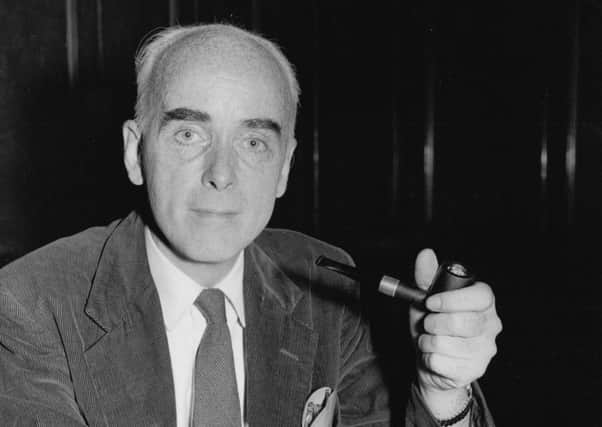Journalist betrayed Britain to become Russian spy


Cedric Belfrage leaked highly sensitive secrets to the Russians while working for the British security services in the US.
The information was of such value that for a time Soviet intelligence regarded him as one of its key assets, even more important than Kim Philby, a member of the “magnificent five” Cambridge spy ring.
Advertisement
Hide AdAdvertisement
Hide AdPreviously unseen MI5 files revealed Belfrage had passed on intelligence about British spying methods to the Russians, along with highly sensitive documents on Vichy France and details of British policy in the Middle East and Russia.
But when he was finally caught he claimed the information was of a “trifling nature” and maintained he was using the intelligence to try to infiltrate Soviet networks.
Professor Christopher Andrew, the former official historian of MI5, said Belfrage’s Soviet handler praised the intelligence he provided to Moscow as “extremely valuable”.
He added: “For a year or so in the middle of the Second World War, Soviet intelligence even rated him ahead of Philby. Though Moscow has released some of Philby’s KGB file, however, it has revealed nothing about Belfrage.”
Born in London in 1904, Belfrage studied at Cambridge University, where he developed a passion for film, but left without taking a degree.
By the beginning of the 1930s he was Britain’s best paid film critic, working as a film and theatre critic for the Daily and Sunday Express newspapers from 1931 to 1934, and as a critic and columnist for the Daily Express from 1935 to 1936, before moving to Los Angeles.
But he also had left-wing sympathies, and after visiting Moscow in 1936 he returned to the US a committed Communist, keeping close contact with Earl Browder, head of the Communist Party in America, as well as Communists in Britain, and writing for numerous left-wing publications.
From 1941 to 1943 Belfrage worked for the combined MI6 and the Special Operations Executive body, the British Security Co-ordination, in New York – a letter in the files from Philby confirms his position – where he was the right-hand man of William Stephenson, head of the BSC and the most senior British intelligence officer in the western hemisphere.
Advertisement
Hide AdAdvertisement
Hide AdThis work took him on to the psychological warfare division of SHAEF, the Supreme Headquarters Allied Expeditionary Force in Paris, where he dealt with press affairs.
But he was exposed after the spy Elizabeth Bentley defected from the Communist Party to become an informant for the US.
In 1946 evidence from an FBI investigation into the Soviet secret police operative Jacob Golos and a defector codenamed “Speed” uncovered Belfrage’s deception.
Authorities learned he had been passing intelligence to the Soviets during the 1940s and was part of a spy network engaging in espionage.